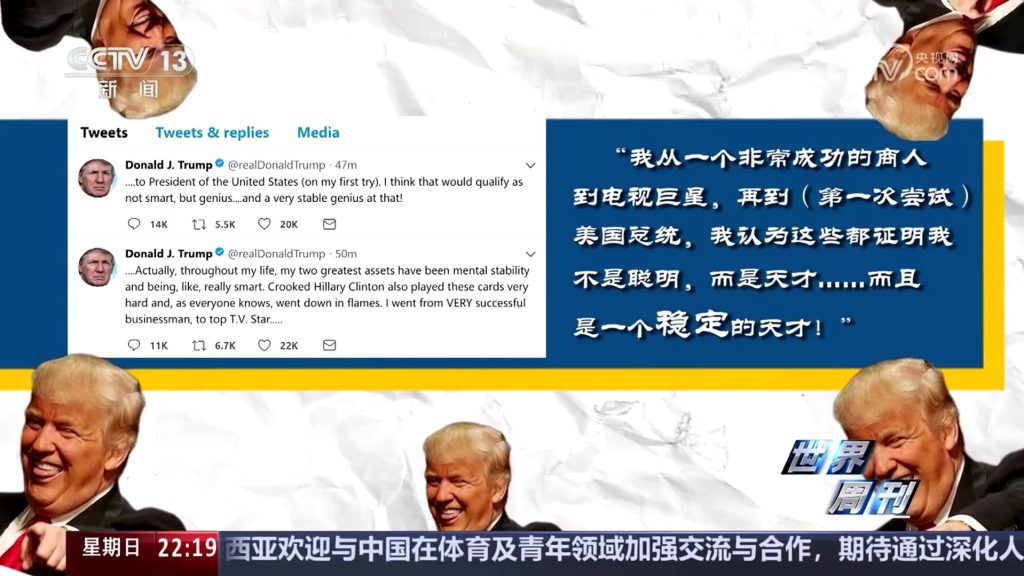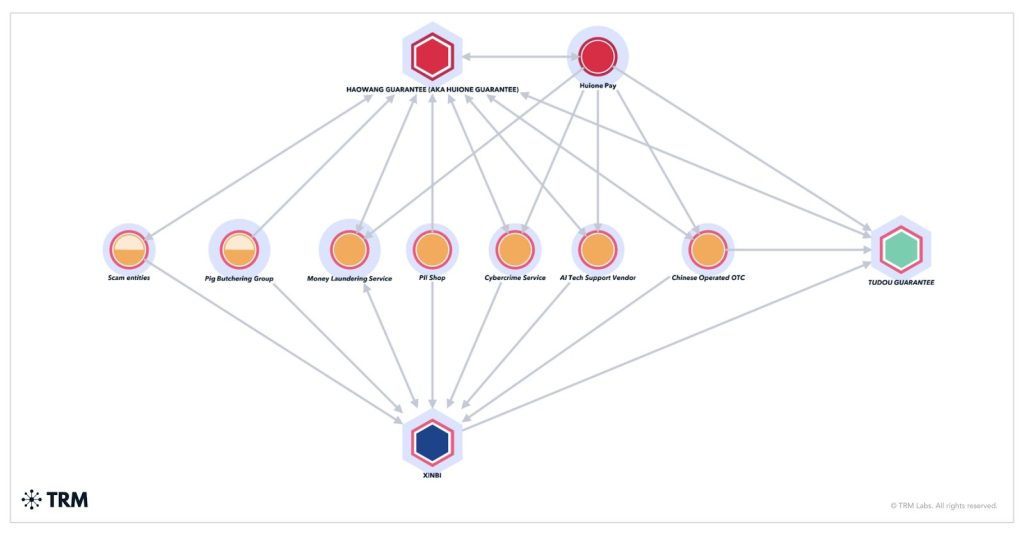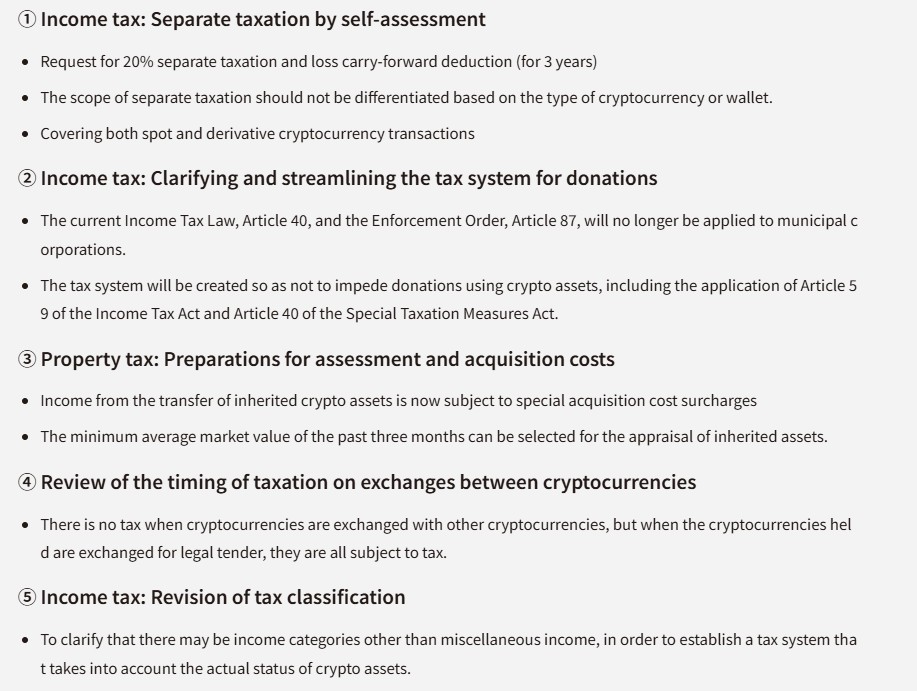China airs 30-minute US crypto satire
CCTV, China’s state broadcasting mouthpiece, aired a half-hour special on cryptocurrencies and how the US is attempting to solidify dollar dominance with stablecoins.
The July 27 broadcast framed the new US stablecoin legislation GENIUS Act, as a geopolitical turning point. CCTV pinpointed that the new rules explicitly ban a Federal Reserve-issued central bank digital currency (CBCD) while allowing stablecoins to export US debt in digital form.
The broadcaster said stablecoins backed by US Treasury bonds represent the third phase of dollar hegemony after Bretton Woods gold and Middle Eastern oil. In this model, crypto users across the globe become indirect holders of US government debt, while stablecoin issuers emerge as the next generation of bond superbuyers. The program warned that this digital infrastructure could displace weaker currencies.

The program tied the legislation to Trump and spent a portion of its presentation dissecting his conflict with Fed Chair Jerome Powell, painting a dysfunctional scene while portraying cryptocurrencies as tools of elite interests. CCTV cited a Reuters article to claim that crypto businesses financed the president’s family’s debt repayment for a Wall Street office building.
The actual Reuters report did not single out crypto. It reported: “The president’s golf and resort businesses have performed well in recent years, throwing off a lot of cash. In recent months, his family business has struck lucrative licensing deals with developers and opened multiple beachheads in cryptocurrencies, which have yielded hundreds of millions of dollars in fees and other revenue.”
A chunk of the TV special focused on crypto crime, such as social engineering scams, impersonation attacks and high-profile digital heists. These were presented as symptoms of lax oversight and deregulation. China is also facing a major $1.8 billion crypto scam scandal, which was not discussed in the broadcast.
The special also omitted China’s CBDC project, its crypto bans or Hong Kong’s own stablecoin regulation, which is set to take effect on Aug. 1.
In a separate report on Thursday, state-backed outlet National Business Daily published an interview with Song Ke, the executive dean of social sciences at Renmin University. Ke said that China’s CBDC and Hong Kong dollar-backed stablecoins can reduce dollar reliance. He added that the new rules can open paths for digital yuan integration into the stablecoin economy.
Tudou and Xinbi take fallen Huione’s place as darknet market leaders
Tudou Guarantee and Xinbi Guarantee have emerged as the new leaders among Southeast Asia’s illicit crypto escrow market, following Telegram’s May takedown of Huione Guarantee channels.
The US Treasury’s Financial Crimes Enforcement Network labeled Huione Group, which allegedly operated Telegram illicit market Huione Guarantee and crypto payment platform Huione Pay, a primary money laundering concern in May. The operation was found to be tied to Cambodia’s ruling Hun family by blockchain analytics platform Elliptic in 2024.
TRM Labs said in a report on Wednesday that the shake-up did not dismantle the region’s underground financial system, but accelerated a shift. Tudou’s daily incoming transaction volume surged nearly 70-fold since May 11, when Huione Guarantee announced it would suspend its escrow operations. TRM analysts found vendors formerly active on Huione are now operating on Tudou using the same wallet infrastructure.

Xinbi Guarantee also recovered rapidly. After being briefly removed from Telegram, it returned under the same ID and saw a 90% increase in daily inflows.
Meanwhile, Huione Pay, Huione’s payment arm, remains active. After the ban, its average daily transaction volume rose by 50% before stabilizing about 10% above previous levels. TRM’s analysis shows overlapping infrastructure between Huione Pay and Huione Guarantee, with historical flows from Huione Pay withdrawal wallets into Huione Guarantee’s deposit wallets.
TRM said that the crackdown triggered “fragmentation, not collapse.” Despite sanctions and platform bans, Huione and its network continue operating through Tudou and other affiliates, distributing risk while maintaining operations. Meanwhile, Xinbi appears to be expanding and benefiting as an alternative platform following Huione’s shutdown.
South Korea to let crypto exchanges freeze suspicious funds
South Korea is preparing to give cryptocurrency exchanges the legal authority to freeze user funds suspected of being tied to phishing and other online scams, as part of a broader national push against digital crime.
The Financial Services Commission revealed the plan on Wednesday during a high-level policy meeting chaired by Prime Minister Kim Min-seok. The meeting focused on public safety, with proposals aimed at curbing rising scams and counterfeit goods.
Scams now make up more than a quarter of all criminal cases in South Korea, and crypto-related fraud has surged in tandem. Last year, authorities busted a $232 million crypto Ponzi scheme that included the arrest of 215 suspects.
Voice phishing alone has spiked by 39% over the past five years, with over 421,000 cases reported in 2024.

As part of its response, the government says it will roll out an AI-based system to detect scams early and improve compensation procedures for victims. The FSC also said it will release new guidelines in the coming months outlining the obligations of exchanges and additional user protections.
Japan’s crypto industry pushes tax reform plan
Japan’s leading crypto industry groups have submitted a tax reform proposal to the government, seeking to align the treatment of crypto assets with that of stocks and other financial instruments.
In June, Japan’s Financial Services Agency proposed reclassifying cryptocurrencies as “financial products” to bring them in line with traditional financial assets. The agency also suggested a 20% tax on digital assets. Local crypto industry groups submitted their own proposal on Wednesday, including additional requests.

The Japan Virtual Currency Exchange Association and the Japan Cryptocurrency Business Association jointly called for a 20% separate self-assessment tax on crypto income, along with loss carry-forwards for three years and consistent tax rules across different types of crypto assets and wallets.
The proposal also urges the government to modernize outdated tax rules. Specifically, it calls for exemptions on crypto donations, use of the lowest average market price over the past three months when valuing inherited crypto, and deferring taxes on crypto-to-crypto swaps until assets are converted to fiat.


Yohan Yun
6 Questions for Ming Duan of Umee
We ask the buidlers in the blockchain and cryptocurrency sector for their thoughts on the industry… and throw in a few random zingers to keep them on their toes! This week, our 6 Questions go to Ming Duan, the co-founder and chief operating officer of Umee, a cross-chain DeFi hub that allows decentralized interactions […]
Read moreBitcoin eyes $100K by June, Shaq to settle NFT lawsuit, and more: Hodler’s Digest, April 6 – 12
Shaquille O’Neal cleared to settle Astrals NFT lawsuit, Bitcoin $100K target still in play, and more: Hodler’s Digest
Read moreCrypto loves Clawdbot/Moltbot, Uber ratings for AI agents: AI Eye


